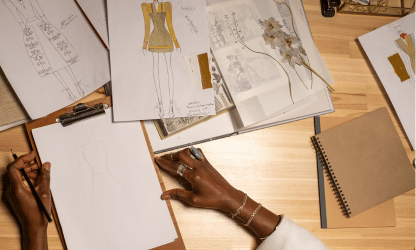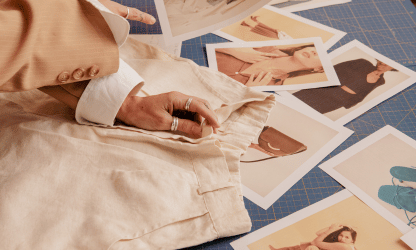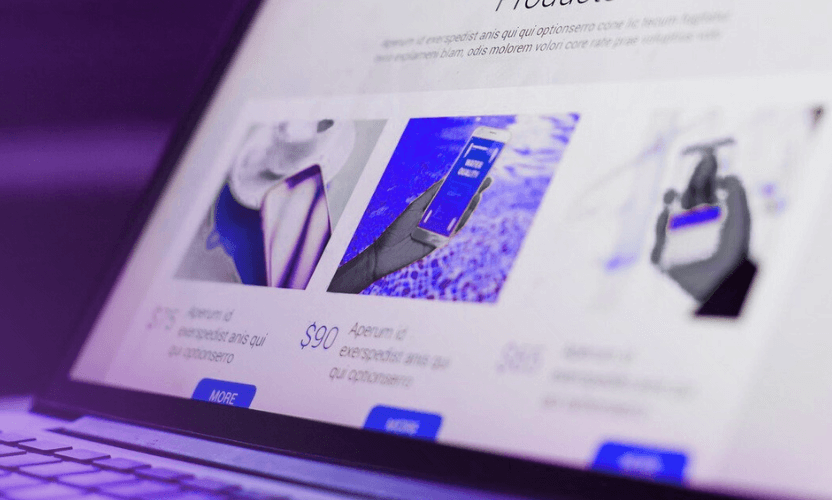The Rise of Fast Fashion
What makes fast fashion…well…fast? Simply put, it’s the rate at which the garments are produced, purchased, shipped, and discarded. The environmental and social impacts of fast fashion have long been debated by activists and consumers alike, whether it be the carbon emissions, the mountains of thrown-away items, the plastic involved in their production, and of course the mistreatment of low-paid workers. On top of all this, those producing fast fashion are also notorious for IP infringements by copying designs.
Intellectual Property Infringements in the Fashion Industry
Let’s take a look at one of the most well-known fast fashion retailers that has recently come under fire for ripping off ideas from other brands and creators – Shein. Valued at over $100 billion, after recent fundraising, makes the business bigger than H&M and Zara combined! Established in 2008, Shein serves over 220 countries with cheaply priced clothes – all manufactured in China. The fashion giant has perfected the fast fashion business model, turning out new products constantly in line with new trends, at rock-bottom prices. Often, these are copies from the catwalk or the latest celebrity fashion line. Most recently in the news, Shein has been accused of copying designs from Zara, with many almost identical garments including a figure-hugging pink satin dress, appearing on the site.
This isn’t the first time Shein has copied designs from large retailers. Previous claims of copyright infringement have been lodged by the likes of Levi Strauss, Dr Martens, and Ralph Lauren.
Many social media users praise these “designer dupes” on social media, as getting that high fashion look for a fraction of the price is all too appealing. The world Trademark review reported that hashtags related to counterfeit copies have over 100 million views on TikTok. The popularity of this content is alarming in the fashion industry, and ‘dupe culture’ seems to be on the rise in a big way.

The impact of copyright infringement on business owners
In an article by the Guardian, business owner and artist Vanessa Bowman described her heartache when she discovered her works of art, inspired by her quaint home village, had been ripped off and plastered all over cheap clothing:
“The things I paint are my garden and my little village: it’s my life. And they’ve just taken my world to China and whacked it on an acrylic jumper.”
Vanessa is not alone in her frustration. On the other side of TikTok, many hashtags have been created about the issue of counterfeit products from smaller designers, such as #SheinShame, and #sheinstolemydesign. To combat this criticism, Shein launched Shein X, their programme for aspiring clothing designers to create unique fashion lines, while they handle the manufacturing, marketing and selling. This allows smaller designers to keep ownership of their designs while reaching a larger audience to create sales. But is this enough?
Unfortunately, copies and counterfeits can often cause reputational damage, and cause a loss of profits of legitimate brands – small and enterprise alike. Brands that put the hours in when it comes to thoughtful designs, superior quality materials, and sustainable production often lose out to the cheaper products on these fast fashion sites. So how can they fight back?
How can fashion brands fight IP infringements?
1. Register your intellectual property
Your first port of call when it comes to protecting your brand, is registering your intellectual property. Intellectual property rights can add significant value to your business.
Here are some IP rights you can defend in fashion:
Copyright – Items of fashion are rarely protected individually by design rights. But copyright is your friend here. This is a legal right given to the copyright owner of original work such as graphics design and textiles design. It’s an international right and can be defended online and offline. Words and images are protected by copyright – automatically.
Trademarks – Register your logo, word marks, and brand names so you can enforce against any copycats using your name. Trademark infringements can be monitored online with online brand protection software.
Design – Protect your product’s appearance, physical shape, configuration or decoration. Particularly powerful for more unique products.
Patent – Safeguard your original invention to enable you to take action against counterfeiters by registering a patent. Patent infringements occur when a patented product is copied or sold without the consent of the patent owner.
2. Monitor online marketplaces
Monitor online marketplaces in the territories you trade-in. Search for your products, use descriptive search terms, reverse image searches and identify keywords that may be used. If you find any infringing listings, report them to the platform to be taken down using your IP rights.
3. Utilise industry tools
ACID (Anticopying in Design), is a powerful association fighting the rights of designers. They successfully campaigned for the 2014 IP Act – making the intentional infringement of a Registered Design a punishable criminal offence. ACID’s Image Bank can be super useful in terms of uploading images of designs you create, providing proof of originality and a date stamp. It also offers various other benefits such as tracking potential buyers perusing your designs.
4. Call on experts to enforce your IP rights
This is where SnapDragon comes in.
We’re online brand protection specialists and using your intellectual property, we can monitor, detect and enforce abuse of your brand on the world’s busiest e-commerce, social media and websites. With our powerful AI brand protection software we search the internet’s busiest marketplaces to find listings that infringe on your intellectual property.
Using your intellectual property, we continually report and remove infringing listings from online marketplaces as they arise. On top of your regular service, we can also perform test and trap purchases, and perform investigations into sellers that you can use as evidence for any offline action.
Our fantastic team of multi-lingual brand protection specialists will help you fight back against IP infringement and protect your customers, your revenue, and your reputation. Get in touch, and we will perform a free, no-obligation brand audit to show you where your brand might be in danger.




